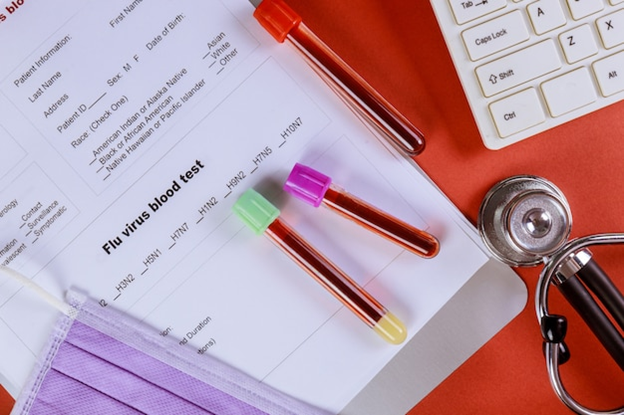When I first heard about anemia, I didn’t realize how common it is. Anemia is a condition where your blood doesn’t have enough healthy red blood cells. These cells carry oxygen to your body’s tissues. It can lead to fatigue and weakness. Testing for anemia is important because symptoms may go unnoticed. If not caught early, anemia can cause more severe health issues. Let’s dive into what you need to know about anemia testing.
Understanding Anemia: Symptoms and Risk Factors
Anemia can be tricky because it doesn’t always show clear signs. It’s what happens when your body doesn’t have enough red blood cells. These cells could be low in number, or lacking hemoglobin, their key protein.
Feeling exhausted even when you’ve rested might hint at anemia. You may also notice your skin looking paler than usual. Activities that were easy before might suddenly leave you out of breath.
Certain folks are at a higher risk of having anemia. Kids need lots of nutrients for growing strong, but they don’t always eat a balanced diet. Pregnant women need more iron to nourish themselves and the baby. Older people might find it hard to get nutrients due to age or diet limits. If you’re on a strict diet like vegetarianism, some needed nutrients might be missing. It’s vital to get tested for anemia if you belong to these groups.
The Importance of Early Anemia Testing
Sometimes we ignore the gentle signs of anemia, not noticing them. Because symptoms don’t scream for attention, people experience a delay in knowing they have it. That’s why getting an early anemia test is important.
Discovering anemia early can make a huge difference in health. If you don’t catch it, anemia can lead to heart or brain issues. Testing early helps prevent these serious problems from happening.
Anemia might not be alone but a sign of other issues. It could signal other health problems hiding beneath the surface. Getting an anemia test can reveal these hidden concerns.
Exploring Types of Anemia and Diagnostic Tests
Anemia can come in a few different forms. The most seen type is a shortage of iron in the blood. There are also types due to low Vitamin B12 or not enough folate. Figuring out which kind you have makes sure your treatment is on point.
To find out more about your anemia, doctors use some regular tests. The Complete Blood Count (CBC) lets them see how many red cells are in your blood. The Reticulocyte Count checks if fresh red cells are being made. These tests are important starting steps.
Each test has a job to do. A CBC looks at the number of cells and checks hemoglobin levels, capturing exactly what’s going on. A Reticulocyte Count shows bone marrow action, revealing how your body works against anemia. Together, they provide essential clues.
Advancements in Anemia Testing: New Technologies
Technology advances bring more precise and immediate results to anemia testing. These devices make tests quicker and offer more peace of mind.
If the thought of needles or clinics bothers you, try an anemia test at home. These kits are easy to use and bring comfort, but professional consultation is still vital for best care.
Ongoing tech development means less painful processes in testing today. Labs keep innovating, making tests more user-friendly and comfortable for everyone.
Anemia Testing in Routine Health Check-Ups
Adding an anemia test to your regular check-up is smart. Doctors can catch issues early and keep you informed on your health.
Routine health exams are important for everyone, even if you feel fine. It’s crucial to watch for anemia, especially in those who might be more at risk.
It’s not just about treating sickness but being proactive about health. An anemia test gives peace of mind and helps keep tabs on your body’s wellness.
What to Expect During an Anemia Test
Booking a test takes just a call, and you’re all set. Going for the test, they’ll collect a small bit of your blood. The needle pinch feels like a quick pinch, it’s brief.
It’s good to drink water before going for the anemia test. Depending on advice, you might need to skip breakfast too. Be sure to tell them about your past health, always helpful.
Once it’s done, the doctor reads what your anemia test says. They’ll help explain it in an easy way you can grasp. Don’t hesitate to ask if you’re unsure about anything.
Post-Diagnosis: Managing and Preventing Anemia
You might feel overwhelmed, but treatments for anemia are available. The doctor might suggest iron supplements or changes in your usual diet. Every case has its own path, so it’s key to follow your healthcare provider’s advice.
Changing what you eat may fight anemia effectively. Foods rich in iron, such as spinach, beans, and red meat, are helpful. Including foods with essential vitamins supports your journey to recovery.
Once your treatment begins, regular follow-up tests ensure things move forward. These tests confirm that the new routine is making a difference. Adjustments might be needed as part of ongoing care.
The Importance of Anemia Testing for Women and Children
Women and children face higher risks of anemia due to specific nutritional needs. Women, especially during pregnancy or menstruation, may experience iron loss, leading to higher anemia risks. Kids need balanced diets filled with nutrients vital for their growth and health.
To manage health proactively, regular anemia tests for women and youngsters are essential to catch deficiencies early. Early detection allows for addressing challenges through diet changes or supplements, which supports overall well-being.
Caregivers should consider anemia testing when noticing fatigue or pale skin in kids. Tests are beneficial for school-aged children who feel tired frequently at unusual levels. Annual health check-ups are an ideal opportunity to include anemia tests for everyone.
Choosing Reliable Anemia Testing Services: Why Opt for SLP Diagnostics
Finding a trustworthy service for anemia testing gives peace of mind. Reliable labs ensure accurate results, which eases worries considerably.
SLP Diagnostics stands out with their continuous dedication to quality care. They use advanced methods, making tests straightforward and easy for people.
If you’re unsure about your health, consult professionals for anemia tests. Early diagnosis helps in managing health and avoiding complications.


